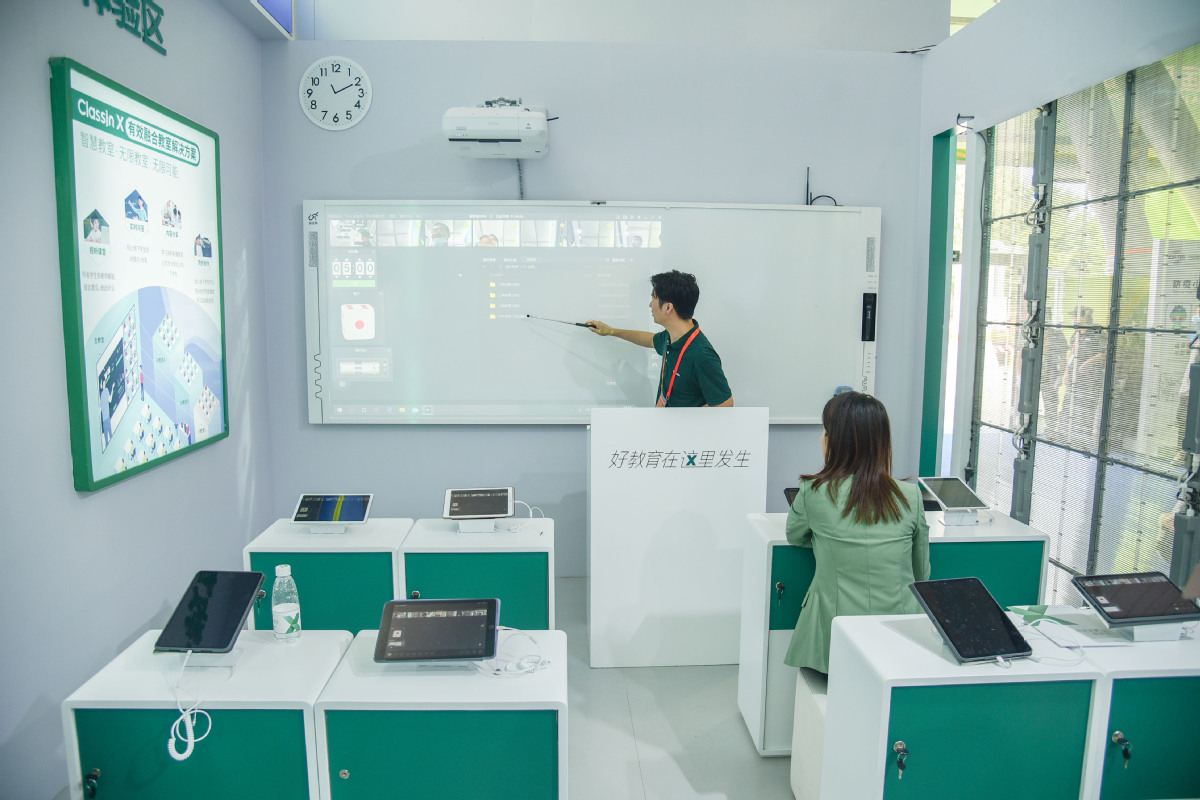Young professionals warm to online education


"They can provide students with more accurate and personalized service. The existence of tutors allows online education to truly reach the individual and teach students in accordance with their aptitude in the internet age."
A report published by the School of Statistics of Beijing Normal University and leading online education startup Zuoyebang showed young graduates are becoming a major segment of class tutoring on online education platforms, as over 75.39 percent of graduates surveyed were born after 1995.
Graduates born after 1996 and graduates born between 1990 and 1994 accounted for 24.16 and 23.81 percent of the class being tutored respectively. Only 0.8 percent of tutors in the online education sector were born between 1985 and 1990.
Industry insiders said the online education also plays an important role in stabilizing employment, as many of them are facing tough times due to the economic uncertainties caused by the COVID-19 pandemic globally.
Though the epidemic has affected many industries, surging demand for online study from hundreds of millions of students has boosted online education to new highs. The education sector, which traditionally relies heavily on offline schools and institutions, is moving online overnight, creating a unique homebound economy.
"The epidemic is directly driving the online education industry to make a big leap forward in the country. It has now become a large-scale education experiment," said Zhu Yongxin, deputy secretary-general of the Central Committee of the Chinese People's Political Consultative Conference and vice-chairman of the Central Committee of the China Association for Promoting Democracy.
ClassIn, an online classroom service provider of educational firm EEO, received nearly 3,000 registrations from various educational institutions in a single day. The company temporarily enlarged the capacity of its system by 20-fold, but still had to restrict new entries to keep its system stable.
"The novel coronavirus outbreak has boosted the awareness and market prospects of online education firms in the country as the online education industry is quickly covering and penetrating into many corners of the nation during the special period," said Zhang Lijun, an education veteran and partner of Sinovation Ventures, a venture capital firm founded by noted investor Kai-fu Lee.
Zhang said it's now easier for companies to acquire users at comparatively lower costs than before and the penetration rate of online education is expected to grow by around 10 percent after the epidemic.
Another interesting phenomenon is that widespread online courses in the country have also led to booming sales of electronic devices. These include iPads, laptops, printers and even projectors as some parents are afraid that longtime learning in front of computers and smartphones will harm their children's vision.
According to secondhand platform Zhuanzhuan, the transaction volume of tablets and computer products through the platform increased 84.7 percent from Feb 1 to Feb 13 compared with the same period the previous month.
Of the total, the transaction ratio of third, fourth and lower-tier cities has reached 45.7 percent. Tablet products such as the iPad Air and Huawei M6 were among the top sellers.
While online education continues to boom, Zhang from Sinovation Ventures pointed out that many challenges still exist.
"It will be difficult for companies to retain users on a sustainable basis and for them to become loyal customers after the epidemic. The online education sector is unlikely to replace offline businesses in the long run," she said.
"Offline education will once again be the priority for many parents because some of them don't have the time and energy to take care of their children all day in front of a computer, while others want to protect their children's eyesight," she added.
Her words echo some parents' claims that online classes are not easy to control and the effect of studying is not as good as that found in classrooms. Others argue the network is not always stable due to the huge amount of users.
"With many people stuck at home for long periods, there is the possibility that once the epidemic is over, offline consumption will see explosive growth, which in turn will lead to a downturn in online demand," said Xu Linfeng, a senior analyst at Huaxi Securities.



































